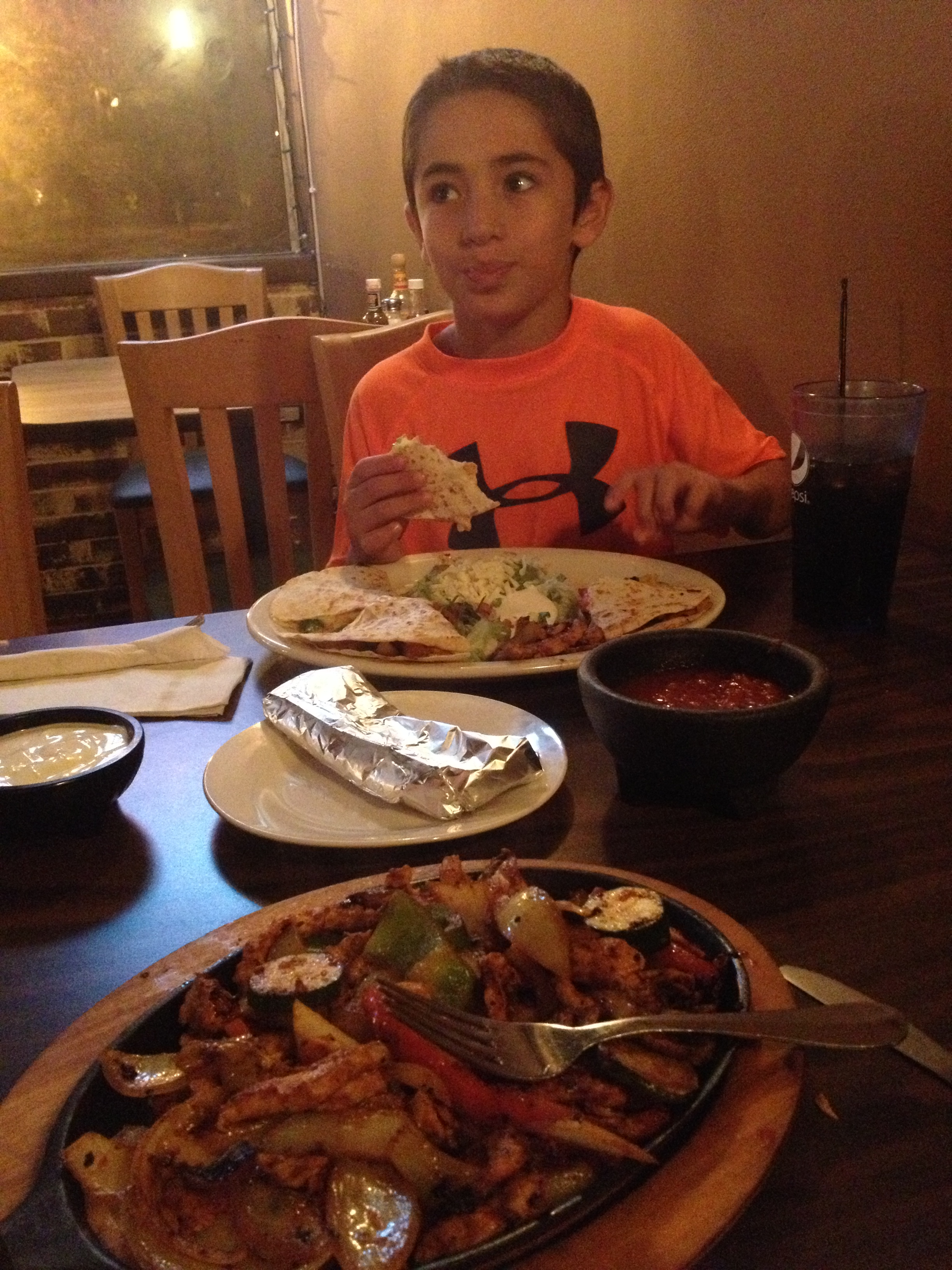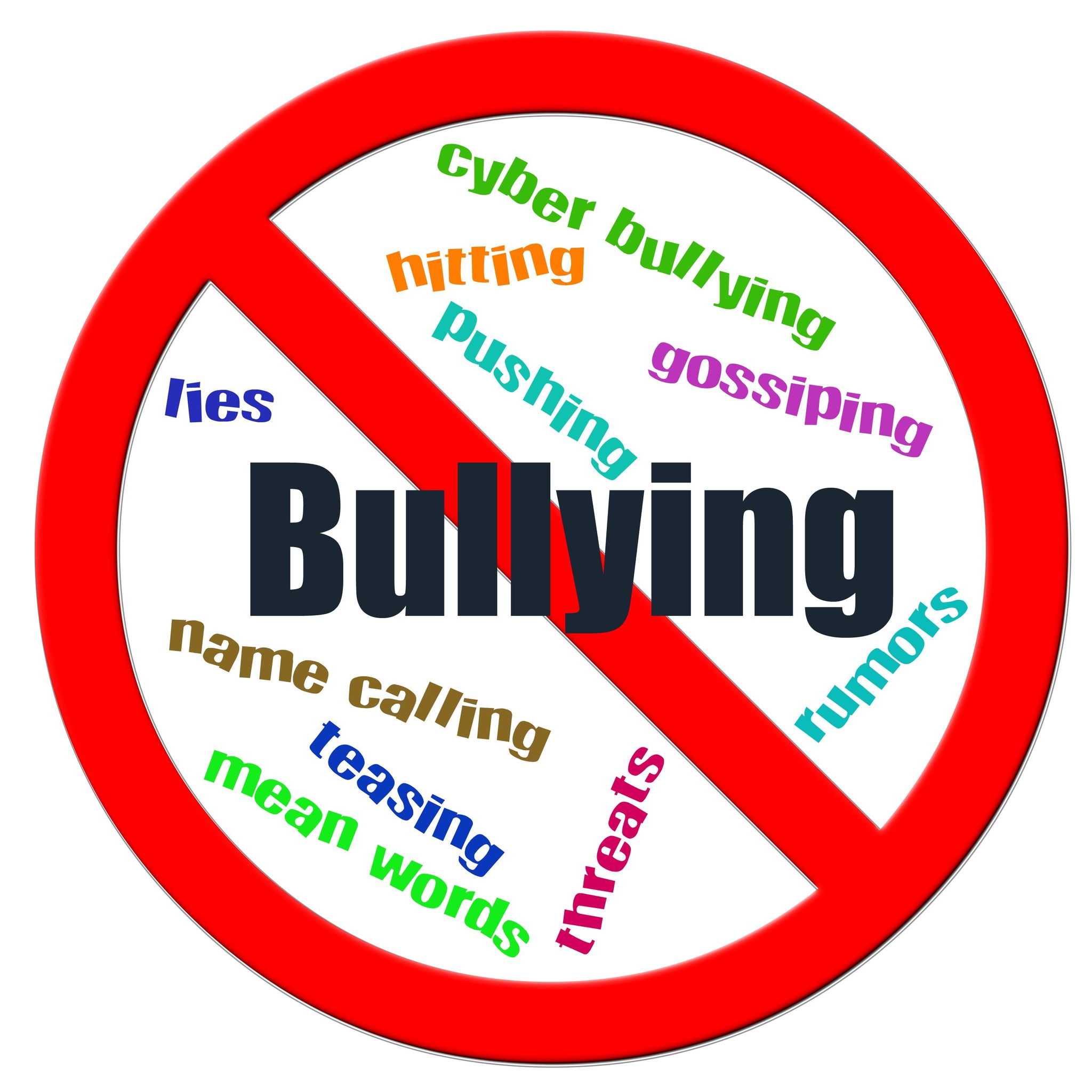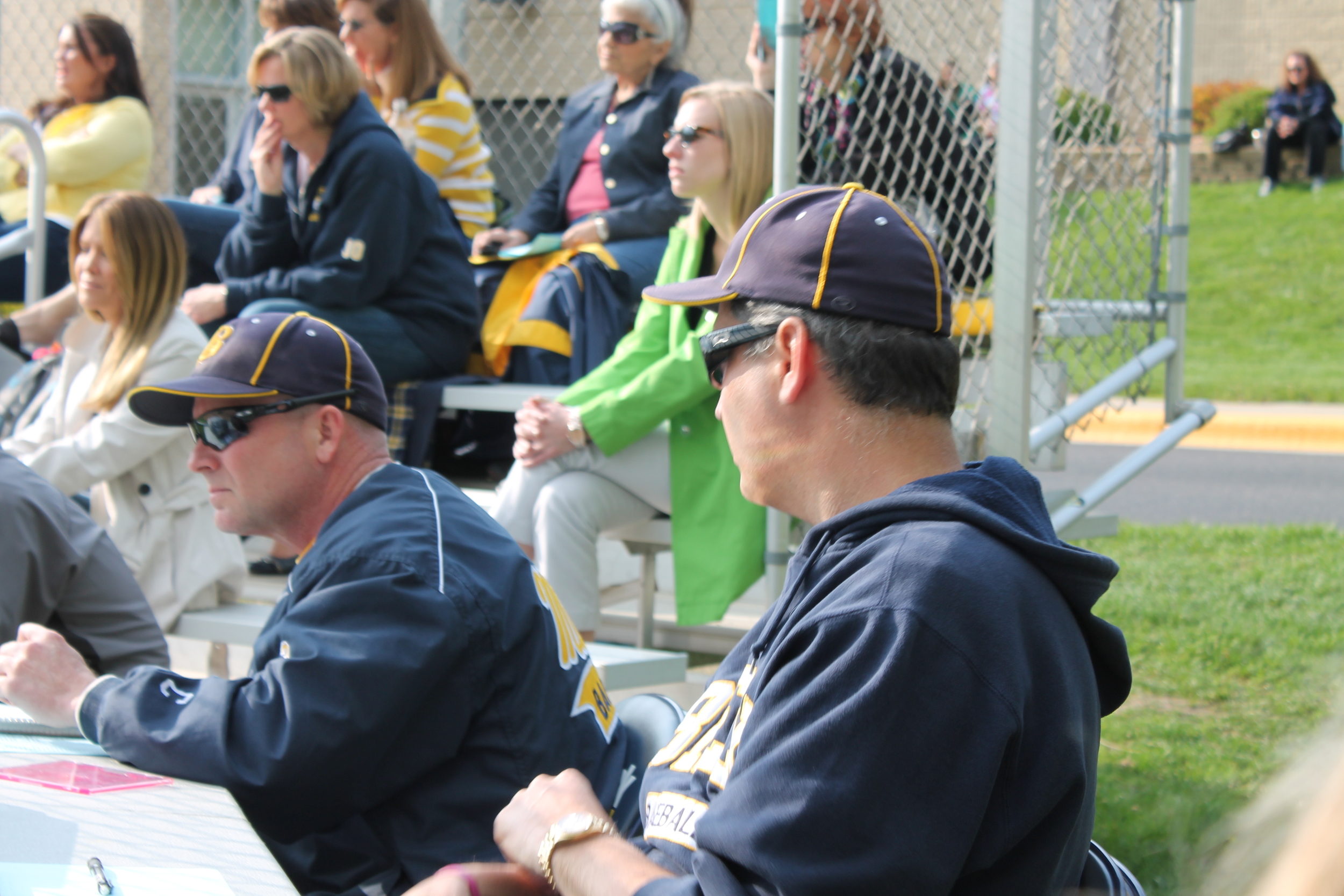 “It’s ok mom, we don’t have to go,” my 12-year-old son said as he dropped his eyes to avert my gaze. I promised him we would road trip to Milwaukee for one of his good friend’s Bar Mitzvah’s the following day but I had come down with a nasty cold (probably due to standing outside in the freezing cold and rain for a football game during my daughter's college Parents Weekend) and am still in recovery from a nagging back injury. An 11-hour round trip car journey did not sound very appealing to me…at all. Rushing around trying to get my other son ready to head to the airport for a baseball tournament and my daughter ready to go meet her cousin for her birthday dinner, I yelled in my 12-year-old’s direction, “Come on! We need to get going! Please get in the car! Now!” No response and no movement from the far end of the living room where he was seated. As I walked over to him, feeling annoyed and impatient, I was just about to yell at him again (I hate that I yell, but I do, especially when I am feeling rushed and discombobulated), but then I stopped myself. I saw his eyes. They were filled with tears. “Oh honey, I am so sorry,” I said. “I was just excited to see my camp friends but it’s okay because you don’t feel good, “ he said softly. “We shouldn’t go.”
“We’re going,” I said with such a conviction that it sounded almost scary. And that was that. There are times when we do things for our kids that we know are not necessarily in our best interest. In fact, as I am in throws of writing my book on motherhood and self care, I talk a great deal about how mothers so often put their kids' and other people’s well being before their own, and end up neglecting to take care of themselves in the process. This is a perfect example of how and why this so often happens. We want our kids to be happy. We make promises that we completely intend on keeping and then life happens. Sometimes the answer does need to be no. Sometimes there is simply no amount of “give” available. However, in this situation, there was a limited amount of give available on my part and damnit, I was going to use it!
“It’s ok mom, we don’t have to go,” my 12-year-old son said as he dropped his eyes to avert my gaze. I promised him we would road trip to Milwaukee for one of his good friend’s Bar Mitzvah’s the following day but I had come down with a nasty cold (probably due to standing outside in the freezing cold and rain for a football game during my daughter's college Parents Weekend) and am still in recovery from a nagging back injury. An 11-hour round trip car journey did not sound very appealing to me…at all. Rushing around trying to get my other son ready to head to the airport for a baseball tournament and my daughter ready to go meet her cousin for her birthday dinner, I yelled in my 12-year-old’s direction, “Come on! We need to get going! Please get in the car! Now!” No response and no movement from the far end of the living room where he was seated. As I walked over to him, feeling annoyed and impatient, I was just about to yell at him again (I hate that I yell, but I do, especially when I am feeling rushed and discombobulated), but then I stopped myself. I saw his eyes. They were filled with tears. “Oh honey, I am so sorry,” I said. “I was just excited to see my camp friends but it’s okay because you don’t feel good, “ he said softly. “We shouldn’t go.”
“We’re going,” I said with such a conviction that it sounded almost scary. And that was that. There are times when we do things for our kids that we know are not necessarily in our best interest. In fact, as I am in throws of writing my book on motherhood and self care, I talk a great deal about how mothers so often put their kids' and other people’s well being before their own, and end up neglecting to take care of themselves in the process. This is a perfect example of how and why this so often happens. We want our kids to be happy. We make promises that we completely intend on keeping and then life happens. Sometimes the answer does need to be no. Sometimes there is simply no amount of “give” available. However, in this situation, there was a limited amount of give available on my part and damnit, I was going to use it!
He couldn’t have been more excited or appreciative. We took in the beautiful fall colors as we blazed east from Minnesota into Wisconsin. I flooded the car with the sounds of Bruce Springsteen, Fleetwood Mac and even a few classic Billy Joel tracks. The poor kid had to listen to me sing every word to Thunder Road and Rosalita…more than once. I needed to explain to him that this was “real” music, and willed him to feel its authenticity and depth. Then it was his turn. He got to play Kid Cudi and B.o.B., which, according to my son, is actually really awesome music, “It’s just that some of the lyrics are inappropriate. Just listen to the music, Mom, not the words,” he explained. O.k., times have changed.
With a cough drop in my mouth, a box of tissues next to me to tame my runny nose and an ice pack on my back, we drove into the night. Conversations started and stopped with ease. We stopped for gas and junk food and I didn’t even freak out too badly when we stopped for dinner and my son exited the passenger side door and I saw it smothered all over the passenger seat. “Oh, I thought there were only three resee’s peanut butter cups in the jumbo pack, not four! I am so sorry, mom!” We laughed and then we laughed again an hour later when we saw the city sign Pewaukee. “Is that just a typo,” my son giggled. I realized that I was relaxed and happy, and so was he.
I was in the moment and wasn’t worried or talking about my older kids’ teenage stuff that often consumes my brain and my mood—AP tests coming up, boyfriend issues, college-related concerns, baseball training and scheduling, SAT tests and curfews—it was wonderfully, simply 12-year-old stuff. It was real and it was meaningful, and yet it seemed so refreshingly uncomplicated that I felt a huge sense of relief. Relief and gratitude that I still have two young children to remind me to laugh at the word Pewaukee and get excited about discovering “THE BEST” Mexican restaurant in the small town of DeForest, WI, where we could eat fajitas and quesadillas and watch the Miami Heat pre-season game with the locals who were downing their watered-down Margaritas. Just to be able to be happy, content and worry-free.
“I’m glad we are doing this,” I said to my son. “Me too, mom, and just think, when we get to the hotel, there won’t be any fighting to get anyone to bed and you don’t have to do any dishes or laundry, you can just go to bed. It will be nice for you,” my son assured me. And he was right.
The next morning, I walked my son into the synagogue for his friend’s Bar Mitzvah. We took two steps into the building and immediately heard a boy’s voice excitedly yell from across the room, “AAABBBE!!” Within seconds, the Bar Mitzvah boy, wearing one of the biggest smiles on his face that I have ever seen, grabbed a hold of my son and whisked him away into the stream of the guests entering the sanctuary. “Abe,” I meekly called after him, “Have fun.” But he didn’t hear me nor did he turn around.
This is the reason that sometimes we say yes to our kids, even when there are countless reasons to say no. Are we martyrs for doing this or just caring, loving parents? Every situation is different, but this time, the precious one-on-one time that I shared with my son, combined with seeing his joy and the joy he brought to his friend, assured me that in giving to my son, I also gave to myself.









 When your happy, well-adjusted 5th grader sends you a text messages from school saying, “Please come and get me. Everyone hates me. My life is ruined,” you know there is a problem.
When your happy, well-adjusted 5th grader sends you a text messages from school saying, “Please come and get me. Everyone hates me. My life is ruined,” you know there is a problem.




